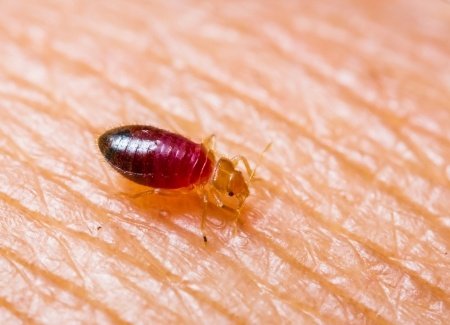As a tenant in New York City, you are probably aware that bed bugs are a huge problem. Unfortunately, some landlords are not acting quickly to remove bed bugs. When faced with bed bugs, many tenants don’t know their rights, or who is responsible for taking care of the infestation.
aware that bed bugs are a huge problem. Unfortunately, some landlords are not acting quickly to remove bed bugs. When faced with bed bugs, many tenants don’t know their rights, or who is responsible for taking care of the infestation.
It’s important to know your rights if bed bugs are present in your apartment, as well as who is responsible for remediation (and the associated costs.) Let’s explore what tenants need to know about bed bugs, and how to ensure your landlord takes action to help remediate them.
What are bed bugs, and where do they come from?
Bed bugs are insects that are commonly the size of an apple seed. They are brown or brownish-red and are largely nocturnal. They lay dormant during the day, most often in beds, the seam of a mattress, couch cushions, headboards, or in cracks along the wall or floor. At night, they crawl out and feed on humans. They do not fly, nor are they known to spread any diseases to humans. Their bites often itch, and some people are allergic to their bite. They flourish in cluttered areas.
The犀利士
insects enter the home/ apartment by traveling from another infested area. Some tenants discover that their next door neighbor had a bedbug infestation that spread to their unit. Bed bugs can latch on to luggage, handbags, backpacks, or other soft surfaced items. They can transfer from one item to the next quickly, such as the length of time your bag sits next to another or on an infested hotel carpet. Even cracks or crevices in the foundation or a firewall between apartments can present an opportunity for bed bugs to move to a new area.
What is the warranty of habitability?
If you find that your apartment has bed bugs, once the landlord is properly notified, the landlord is in violation of the ‘warranty of habitability.’ The Warranty of Habitability is found in New York Real Property Law §235-b, and it obligates landlords to provide safe, sanitary, and livable spaces at all times. Other conditions that violate the warranty of habitability include having no electricity, heat, and/or water, as well as lead paint, strong odors, broken kitchen appliances and door locks, and a myriad of other situations.
Having bed bugs is treated as an infestation similar to that of mice, rats, or cockroaches. It is the landlord’s responsibility to not only disclose the presence of bed bugs or the building’s infestation history to a potential tenant but also pay for the extermination of bed bugs once identified.
Who pays for bed bug extermination?
The question on every tenant’s mind is: If my apartment has bed bugs:(1) who has to pay for extermination and remediation; (2) should I continue to pay rent? Due to a very significant case in New York City Civil Court, Ludlow Props., LLC v. Young, 4 Misc. 3d515 [Civ Ct NY Cty, 2004], Judge Cyril Bedford ruled that the presence of bed bugs, despite the landlord’s remediation attempts, still violated warranty of habitability and the landlord was obligated to pay for remediation. Judge Bedford stated that bed bugs presented a valid negative impact on the tenant’s well-being, safety, health, and welfare. The tenant was therefore granted a six-month rent abatement, and a longstanding case from 1908, Jacobs v Morand, 59 Misc 200 (App Term, 1st Dept 1908), was overturned. Jacobs v. Morand had established that tenants had to continue paying rent, even for a vermin-infested apartment or unit.
The Ludlow case is now the benchmark for bed bug cases in the New York City. There has even been a case, Bender v Green, 24 Misc 3d 174 [Civ Ct, NY County 2009]), where the presence of bed bugs was very likely due to the tenants themselves and the tenants were still entitled to rent abatement to compensate for the breach of warranty of habitability.
Call Justin Brasch of Brasch Legal if you have bed bugs in your apartment
If you have bed bugs, you should speak with a knowledgeable law firm to learn your rights. Justin Brasch is an experienced and compassionate tenant attorney. He can give you the advice you need.
Contact Brasch Legal today at 212-267-2500 and find out how we can help you.





